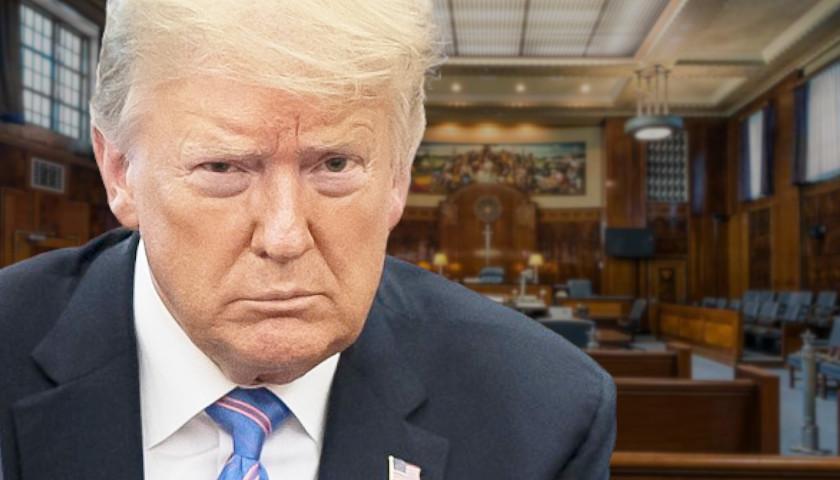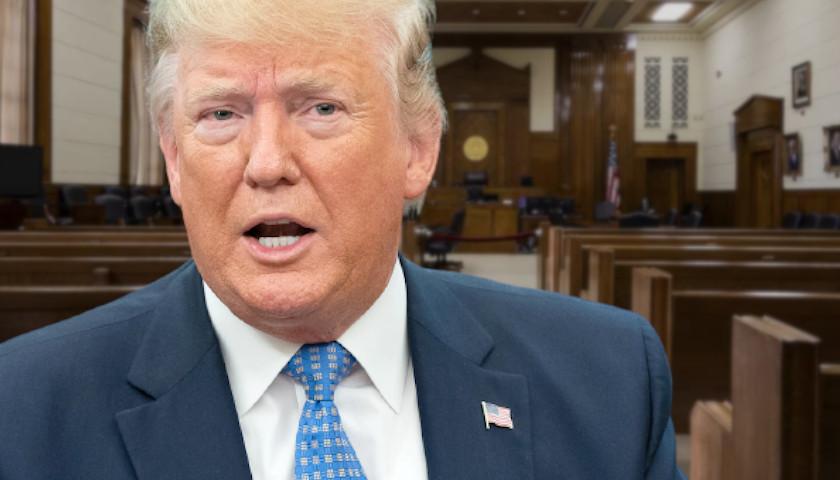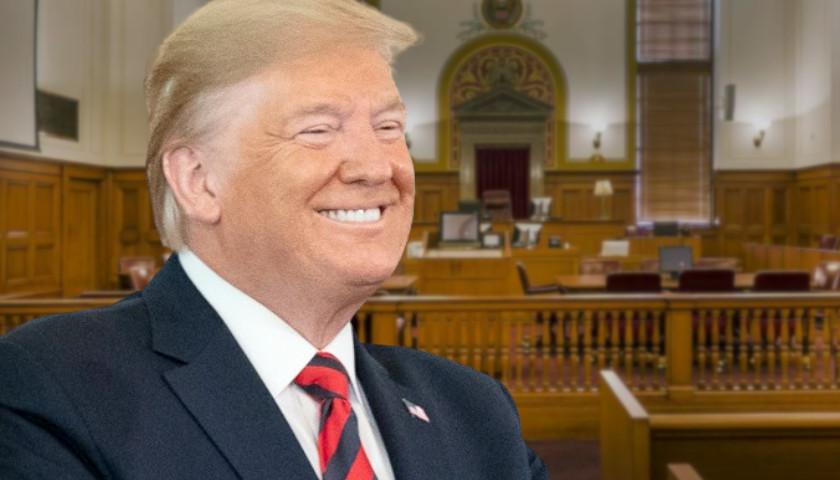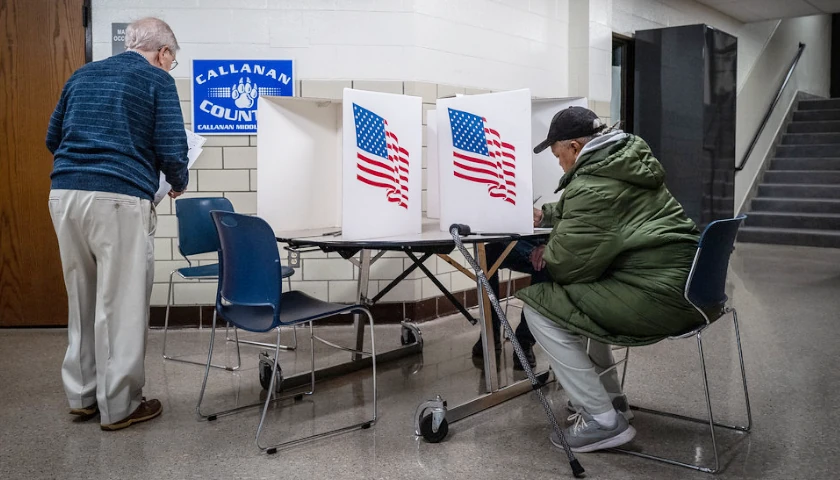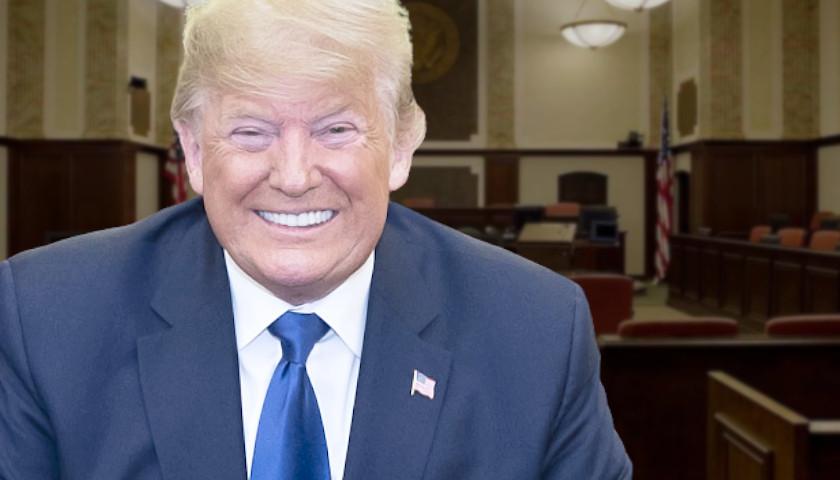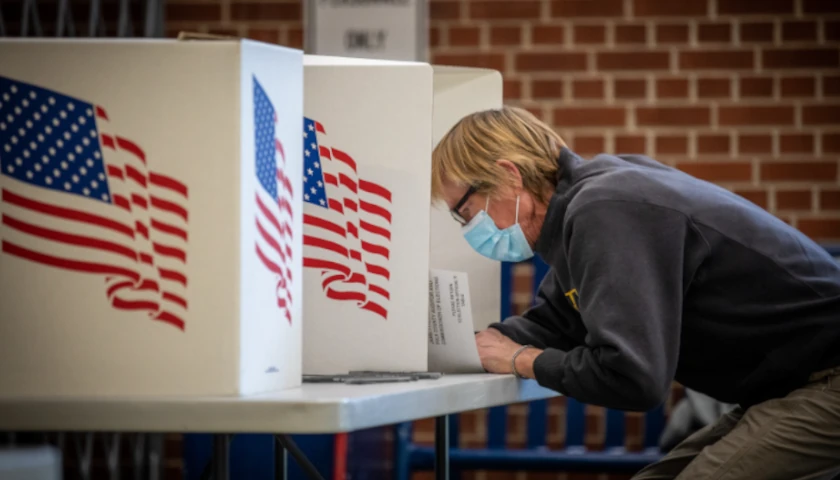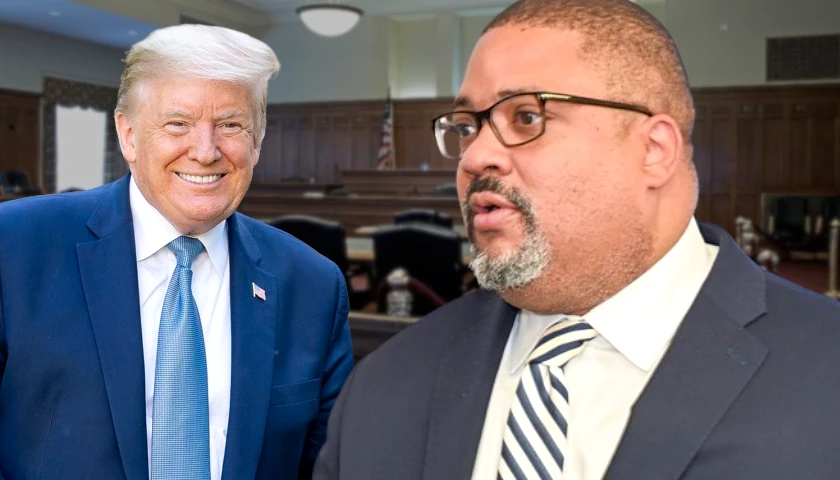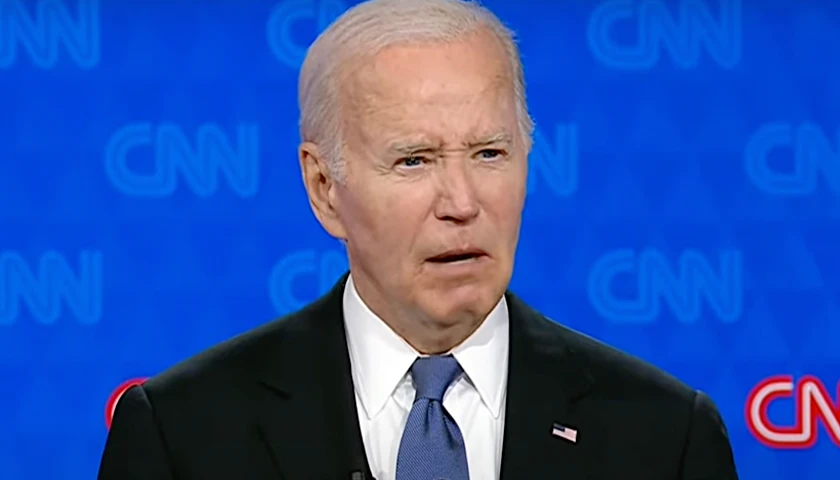President-elect Donald Trump on Friday received a sentence of unconditional discharge in Manhattan District Attorney Alvin Bragg’s hush money case.
Read MoreTag: Alvin Bragg
Supreme Court Denies Trump’s Request to Block Hush Money Sentencing
The Supreme Court on Thursday night denied President-elect Donald Trump’s last minute request to block sentencing in his hush money case.
Read MoreJudge Rejects Trump Bid to Toss Hush Money Conviction, Sets Sentencing for January 10
Justice Juan Merchan on Friday rejected President-elect Donald Trump’s bid to toss out his conviction in Manhattan District Attorney Alvin Bragg’s hush money case.
Read MoreJudge Merchan Indefinitely Delays Trump’s Sentencing Date
Judge Juan Merchan indefinitely delayed President-elect Donald Trump’s sentencing date Friday.
Read MoreAnalysis: Top Five Threats to Election Integrity Ahead of the Presidential Election
While there are dozens of ongoing election integrity issues, a newly released report from a watchdog group lists the top 50 election threats that the U.S. is facing with less than three weeks until the presidential election.
Election integrity has has a spotlight shined on it since the contentious aftermath of the 2020 presidential election and although some states have made improvements, many issues still remain.
Read MoreJudge Delays Trump Sentencing in Hush Money Case Until After Election
Justice Juan Merchan on Friday delayed former President Donald Trump’s sentencing in Manhattan District Attorney Alvin Bragg’s hush money case until after the presidential election.
Read MoreCommentary: Noncitizens Get to Vote in U.S. Elections and How to Stop It
Most countries allow only their own citizens to vote in national electionsand require voters to prove their eligibility to vote through photo identification when they register and before they cast their vote. Here in the U.S., verifying eligibility and registering voters is left to the states. You would hope that the federal government would want to assist the states, especially when it comes preventing foreign interference, and that election integrity would be a bipartisan issue.
You’d think that a bill requiring U.S. states to obtain proof of citizenship before registering voters would have wide support. Such a proposal, the Safeguard American Voter Eligibility, or SAVE, Act (H.R. 8281), passed the House of Representatives Wednesday—but with only five Democrat votes. And the Biden administration “strongly opposes” it.
Read MoreNY Judge Delays Trump Sentencing Date in ‘Hush Money’ Case to September 18
The judge in former President Donald Trump’s hush money case approved a request on Tuesday to push back the former president’s sentencing until Sept. 18.
Read More‘Very Unrealistic’: Replacing Biden Will Likely Land Dems in A Political and Legal Quagmire
Any effort to replace President Joe Biden with another Democratic candidate would likely be an uphill battle against practical, political and even legal obstacles.
Following Biden’s debate performance Thursday night, where he struggled to put together coherent sentences and often stared blankly away from the camera, Democrats began raising the possibility of replacing him as the party’s nominee. Biden, who has not indicated any intention to step down, would likely not be easy to replace due to internal party politics, state laws and numerous uncertainties.
Read MoreJudge Partially Lifts Gag Order Imposed on Trump During Hush Money Trial
A New York judge on Tuesday partially lifted a gag order on Donald Trump following his conviction last month in his so-called hush money trial.
Read More